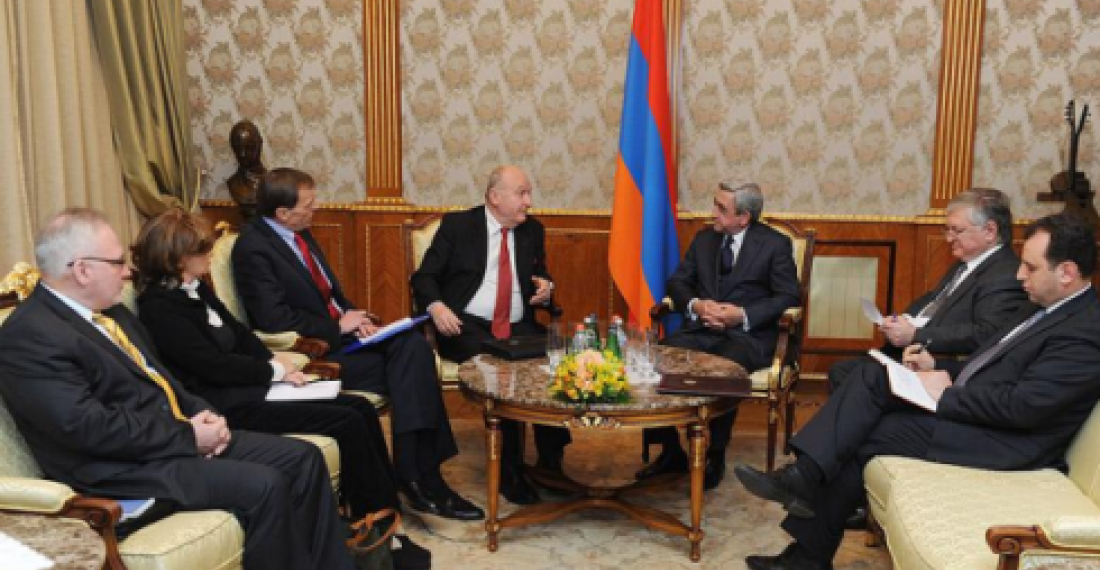Diplomats from France, the United States and Russia - the three co-Chair countries of the OSCE Minsk Process are currently on a visit to the region. In Yerevan they met the Armenian President Serge Sargsyan. Issues related to the forthcoming Ministerial Meeting of the OSCE in Vilnius were discussed at the meeting as well as other issues matters with the Nagorno-Karabakh conflict settlement process.
During the meeting, the French co-Chair of the group, Ambassador Bernard Fassier, introduced the French diplomat Jacques Faure who will take over from him at the end of the year as the representative of France on the peace process. This will be Ambassador Fassier's last visit to the region in his capacity as Minsk group co-Chair.
source: commonspace.eu
photo: Minsk Group diplomats with the President of Armenia in Yerevan on 28 November 2011 (picture courtesy of the press Office of the president of Armenia)







